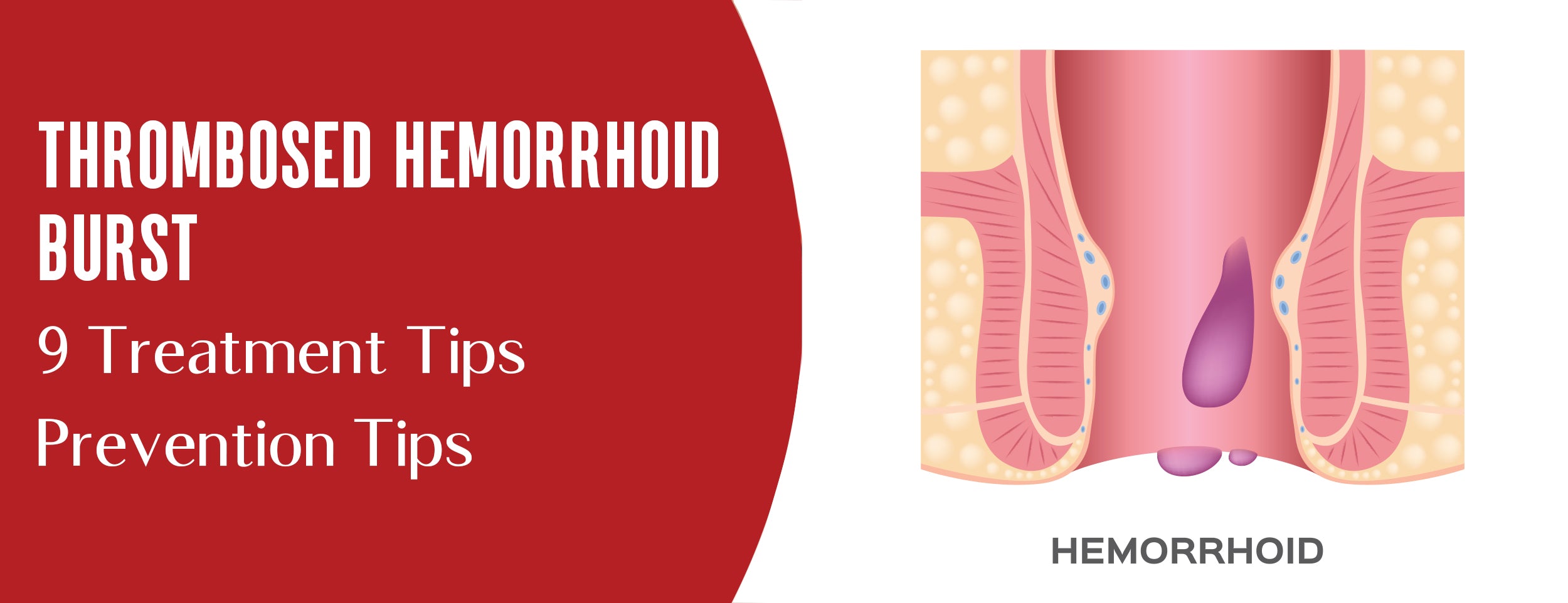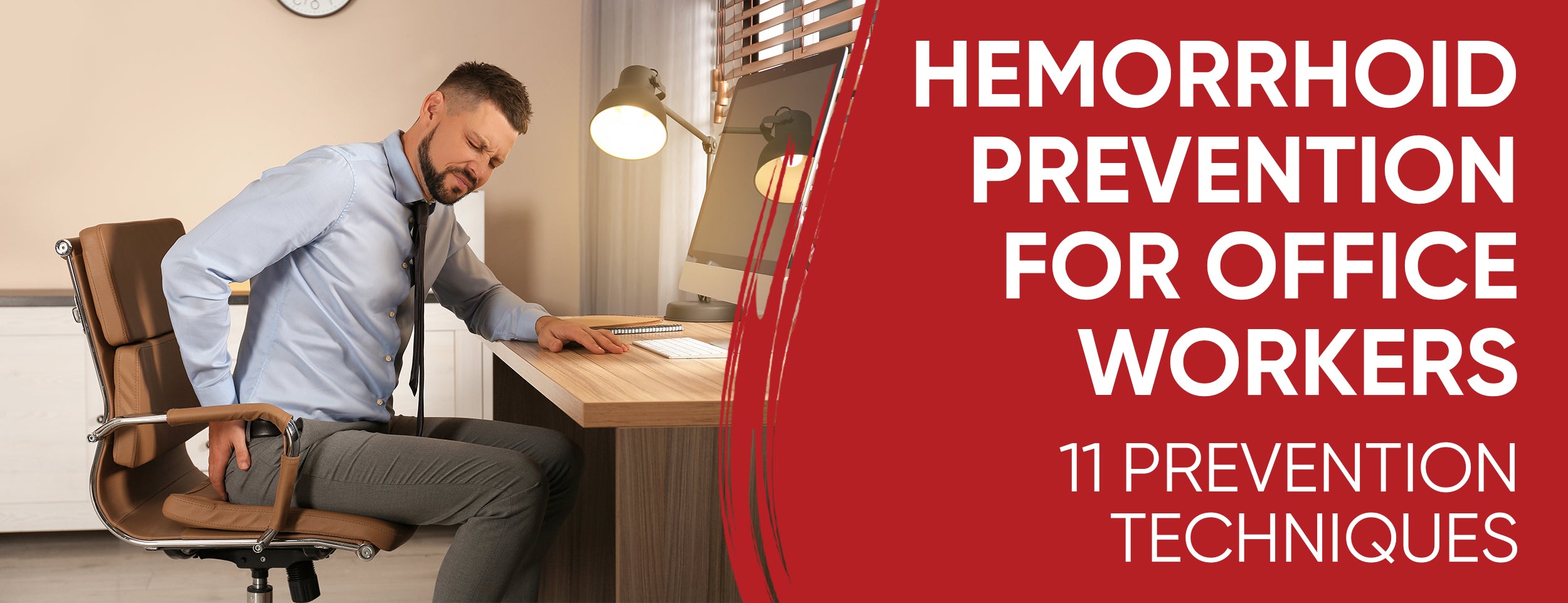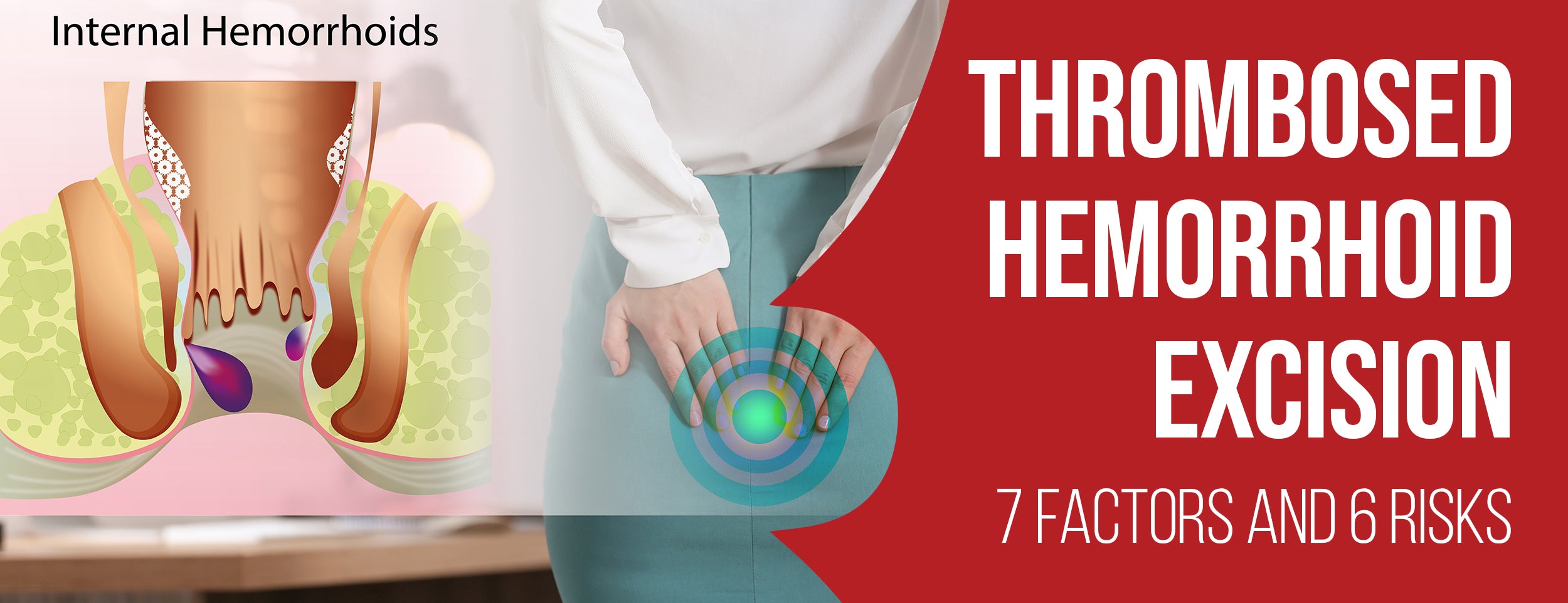A hemorrhoid's blood supply is cut off if it is thrombosed, prolapsed, or strangled. Thrombosed hemorrhoids can cause significant pain and a lump near the anus, which are signs of thrombosed hemorrhoids.
A thrombosed hemorrhoid happens when blood clots fill an internal or external hemorrhoid. "Thrombosis" means clotting, so that's why it's called that. It's painful and tender when hemorrhoids get thrombosed.
In this blog post, we'll explore thrombosed hemorrhoids, their harmful effects, and what you can do to prevent and treat this common condition.
Thrombosed Hemorrhoids: 7 Symptoms

For thrombosed hemorrhoids, recognizing the symptoms early on is crucial for prompt treatment. Here are some of the most common external and internal signs of this condition:
External Symptoms
- Pain and Discomfort During Bowel Movements: This is often the first sign of thrombosed hemorrhoids. The pain can be pretty intense and is usually felt most acutely during bowel movements.
- Swelling and Inflammation Around the Anal Area: The skin around the anus may become swollen, making it challenging to sit and walk.
- Bleeding and Itching Possible: You may notice that your toilet paper or toilet bowl has blood on it after a bowel movement. The area around the hemorrhoid may become itchy, causing further discomfort.
- Brutal, Painful Lumps Near the Anus: You may feel a hard lump near your anus. This is the thrombosed hemorrhoid itself.

Internal Symptoms
- Pain and Discomfort Inside The Rectum: You may feel pain and discomfort, especially during bowel movements.
- Bleeding During Bowel Movements: Similar to external symptoms, you may notice blood during bowel movements.
- Incomplete Bowel Movements Due to Discomfort: The pain and discomfort caused by the hemorrhoid may lead to incomplete bowel movements.
6 Causes of Thrombosed Hemorrhoids
It is essential to understand the causes of this condition to make lifestyle changes to reduce your risk for future occurrences. Let's delve into the six major causes of thrombosed hemorrhoids.
- Constipation: One of the most common causes of thrombosed hemorrhoids is constipation. People who experience constipation often strain to pass the stool, causing their rectum to become enlarged and inflamed.
- Prolonged Sitting: Prolonged sitting puts a strain on kidney veins, leading to the development of thrombosed hemorrhoids. This is especially true for people whose jobs involve sedentary work, car trips, or sitting down.
- Obesity: Excess weight is associated with thrombosed hemorrhoids. Weight gain puts pressure on veins in the pelvic region, making them more susceptible to becoming inflamed.
- Pregnancy: During pregnancy, women are more likely to experience thrombosed hemorrhoids because of the pressure that the growing fetus places on the pelvic region. Pregnancy hormone changes can also contribute to the development of this medical condition.
- Heavy Lifting: People who frequently engage in heavy lifting or strenuous activity may be at a higher risk of developing thrombosed hemorrhoids. The strain and pressure placed on the rectal area during these activities can cause the veins to become inflamed.
- Poor Diet: Eating high amounts of processed foods, low in fiber, and lacking in water intake can contribute to hemorrhoids that thrombose. A poor diet can lead to chronic diarrhea or constipation, contributing to the onset of this medical condition.
10 Complications of Thrombosed Hemorrhoids

Thrombosed hemorrhoids can lead to several complications if left untreated. Here are ten potential complications:
Blood Clots and Infection
When a thrombosed hemorrhoid forms a blood clot, the blood clot may travel elsewhere in the body. This can cause serious complications, such as stroke or heart attack. The clot can become infected, causing pain and swelling.
Chronic Pain and Discomfort
Thrombosed hemorrhoids can cause ongoing pain and discomfort, which can make it difficult to focus on daily tasks. The pain may be especially severe with bowel movements.
Difficulty Sitting and Walking
The inflammation and swelling caused by thrombosed hemorrhoids can make sitting and walking uncomfortable and painful. This can make performing routine daily activities challenging and affect the overall quality of life.
Recurrent Thrombosis
The possibility of recurrent thrombosis is one of the most significant risks of thrombosed hemorrhoids. Once a blood clot has formed in the external hemorrhoid, there is a higher chance of it happening again, primarily if the underlying cause is not addressed.
Anal Fistula
Anal fistula is another complication that can occur if thrombosed hemorrhoids are left untreated. This condition happens when a small tunnel forms within the anus, leading to pus and blood leakage.

Anal Abscess
An anal abscess can occur if the infected tissues around the hemorrhoid become filled with pus, causing inflammation and pain. If left untreated, the spot can burst and lead to further complications.
Anemia
Chronic blood loss from a hemorrhoid may cause anemia. Symptoms include fatigue, weakness, and dizziness.
Strangulation
If the thrombosed hemorrhoid becomes severely swollen, there is a risk of it becoming strangulated. This means that the blood supply to the hemorrhoid is cut off, leading to necrosis (cell death).
Thrombophlebitis
Thrombophlebitis is a rare complication of thrombosed hemorrhoids. It is a condition in which inflammation and blood clotting in the vein. Symptoms include redness, warmth, swelling, and pain.
Infection
If the thrombosed hemorrhoid bursts or becomes infected, it can lead to further complications such as sepsis, cellulitis, or blood poisoning.

Thrombosed Hemorrhoids: Diagnosis & Treatment
Thrombosed hemorrhoids can be extremely painful, and it's essential to know the symptoms and treatments so that you can manage them effectively. We'll break down the diagnosis and treatment options for thrombosed hemorrhoids.
Physical Examination and Medical History
One of the first things a doctor will do when diagnosing thrombosed hemorrhoids is to examine the patient physically and review his or her medical history. These procedures help assess the severity of the illness and exclude any underlying conditions that could contribute to the symptoms.
Home Remedies and Lifestyle Changes
Thankfully, several home remedies and lifestyle changes can ease the discomfort of thrombosed hemorrhoids. These treatments include:
- Over-the-counter creams and ointments: These relieve pain and soothe itching around the anus.
- High-fiber diet: consuming more fiber-rich foods like fruits, veggies, and whole grains can help soften stools and reduce constipation, which can worsen hemorrhoid symptoms.
- Staying hydrated: Drinking plenty of water will enable you to soften stools and keep bowel movements regular.
Medical Treatments
Depending on the severity of thrombosed hemorrhoids, medical interventions may be required. These interventions encompass a range of treatments, such as:
- Surgery: If the hemorrhoids are large and painful, a surgical procedure may be necessary to remove them.
- Rubber band ligation: The hemorrhoids are rendered inactive and fall off after a rubber band is placed around them.hemorrhoid, cutting off its blood flow and causing it to wither and fall off.
- Injections: Injecting a medication into the hemorrhoid can also help shrink it and relieve pain.
4 Prevention Tips for Thrombosed Hemorrhoids

There is a possibility that thrombosed hemorrhoids will resolve independently in a few weeks. Still, you may also require medical intervention, including pain relief, incision and drainage, or surgery. Some tips for preventing thrombosed hemorrhoids and avoiding complications are:
- Maintaining Proper Hygiene: Keeping the anal area cleaned and dry will prevent thrombosed hemorrhoids. Use soft and moist toilet paper or wipes, and avoid using harsh soaps that could irritate the skin.
- Eating a High-Fiber Diet: Fiber-rich foods such as fruits, vegetables, whole-grain cereals, and legumes promote healthy bowel movement, which is essential to preventing constipation.
- Avoid Constipation: Drinking plenty of water will help keep the stool soft and prevent constipation. Consume caffeine and alcohol in moderation, as they can dehydrate the body and cause constipation.
- Regular Exercise and Avoiding Prolonged Sitting: Exercise promotes good blood circulation, which is essential to preventing blood clotting, including in the anal area. Avoid sitting for prolonged periods, and take breaks to stretch
Conclusion
Thrombosed hemorrhoids can be a painful experience that can negatively affect your daily life. You can ease symptoms and reduce the chances of developing hemorrhoids with proper treatment.
In order to prevent further complications, get medical attention if you're experiencing severe pain or swelling around your anus.

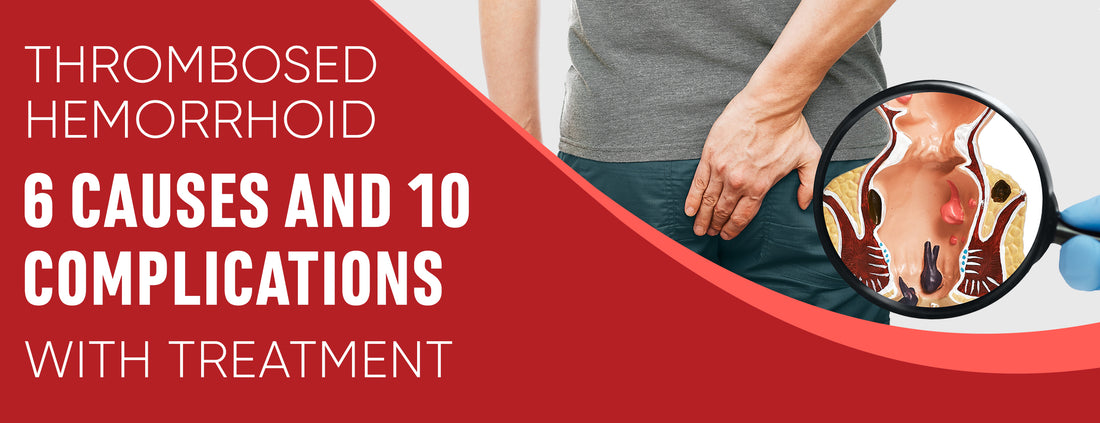

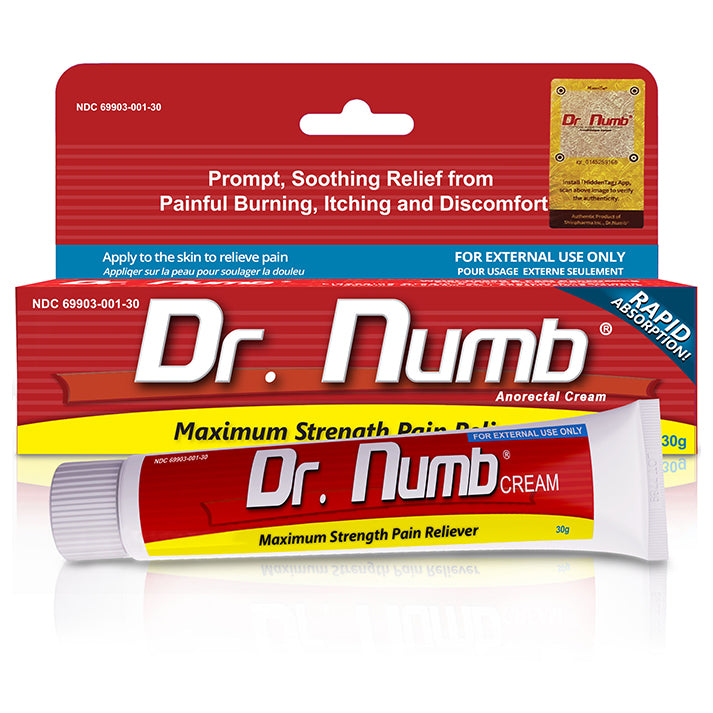
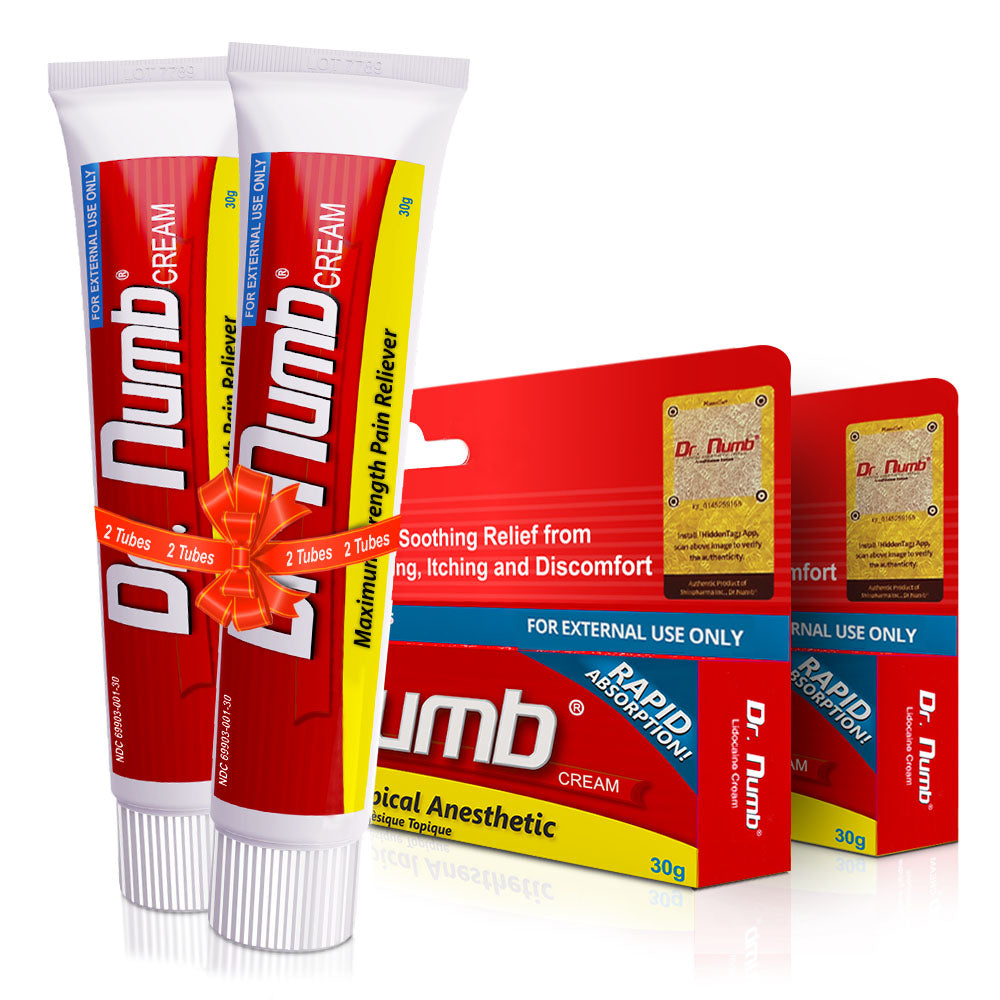
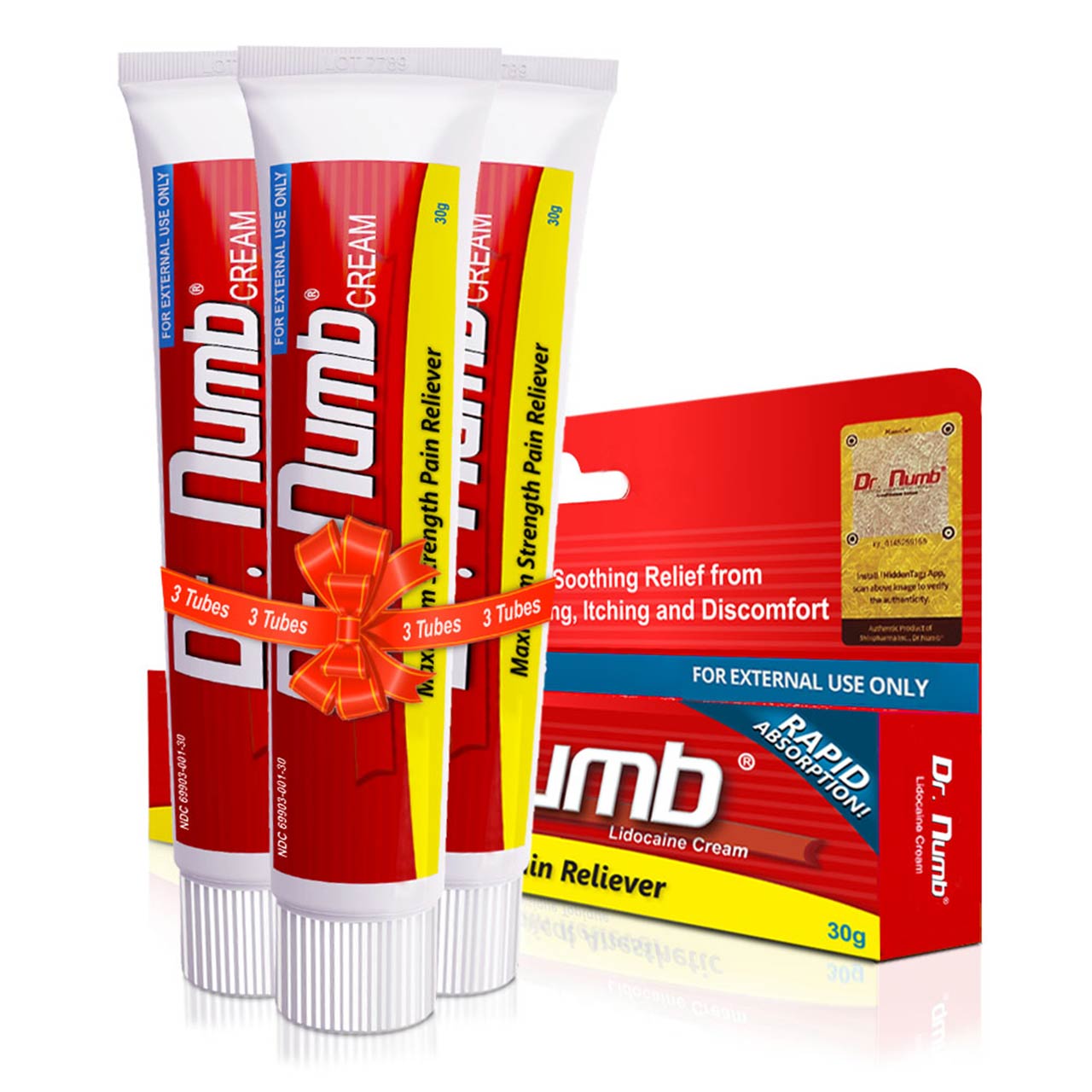


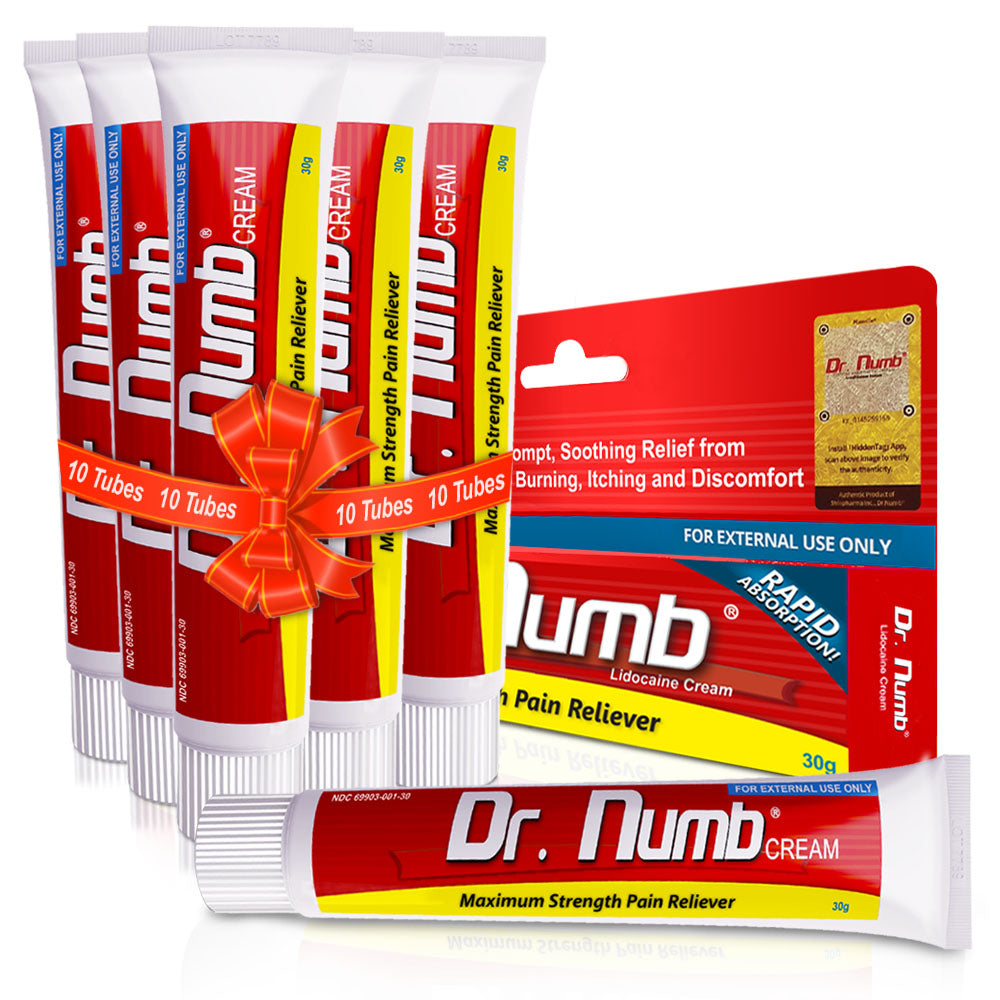
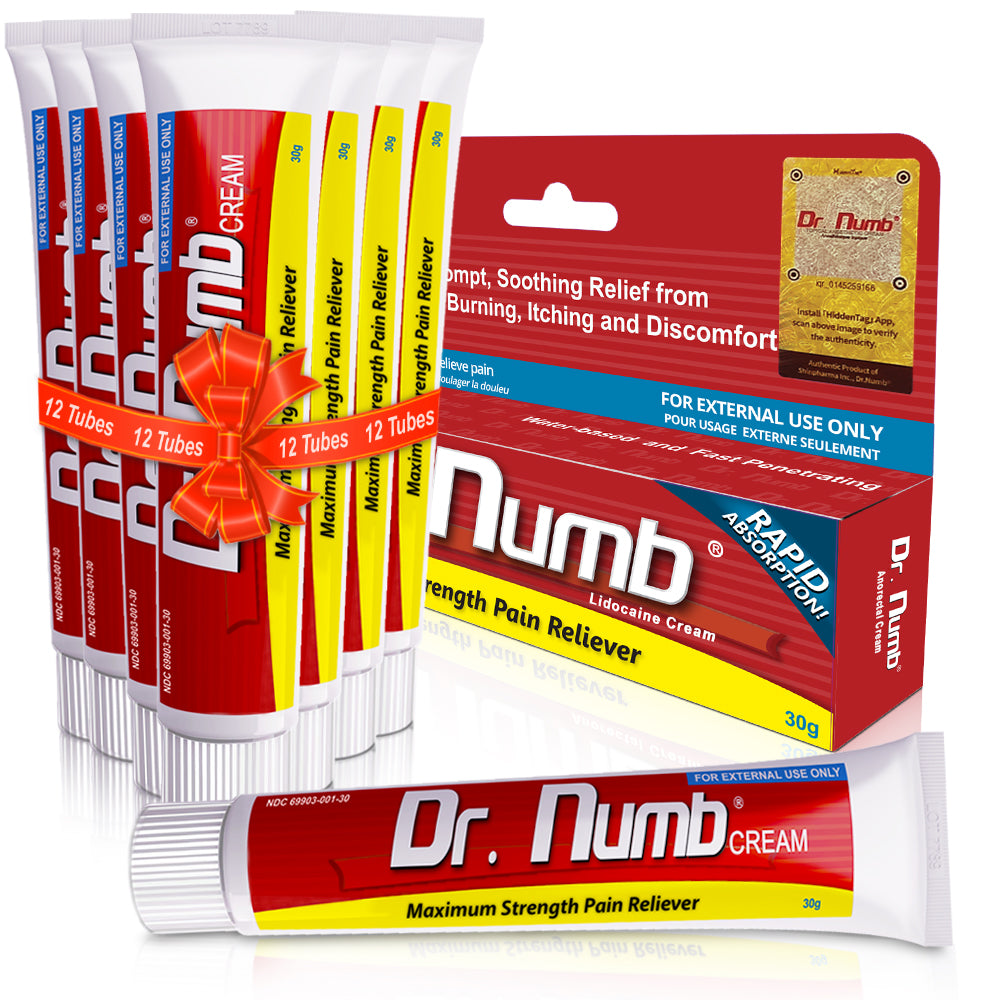





![Healing thrombosed hemorrhoid naturally & medically [with home care tips]](http://drnumb.com/cdn/shop/articles/Healing_Thrombosed_Hemorrhoid_11_Natural_Remedies_Full_Covered.jpg?v=1715323330)
